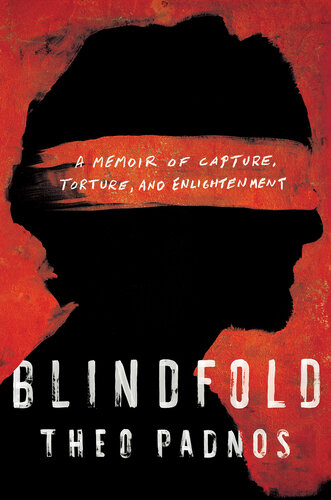
Blindfold
A Memoir of Capture, Torture, and Enlightenment
- اطلاعات
- نقد و بررسی
- دیدگاه کاربران
نقد و بررسی

February 1, 2020
In 2012, while in a Turkish border town to report on the Syrian civil war, award-winning journalist Padnos was kidnapped by al Qaeda and held for two years, with torture a frequent companion and a dirty blindfold his only possession. Here he recounts his captivity while reflecting on life in a Syrian village and the nature of Islamic fighters. With a 50,000-copy first printing.
Copyright 2020 Library Journal, LLC Used with permission.

January 1, 2021
Account of the author's kidnapping and imprisonment at the hands of religious extremists in Syria. Padnos, a fluent speaker of Arabic and a handful of other languages, would be the first to admit that he blundered into the trap that would result in almost two years' captivity by the al-Nusra group, which finally led to a rescue for which, "apparently, many millions of dollars were paid." By whom and for what reason he cannot say for sure, one of many mysteries surrounding his narrative, which builds on a long New York Times piece published soon after his release. Looking for a story in the face of indifferent outlets back home--after a change in ownership, the new editors of the New Republic wouldn't return his emails--he made his way to a region under the control of anti-government Syrian forces, crossed into Turkey, and immediately landed in trouble. "One oughtn't to tell strangers in Antakya that one is an American," he writes ruefully. His initial captors were "overgrown adolescents...who imagined themselves vigilantes," but they also knew the value of an American hostage and passed him along to professionals. With the frightening example of James Foley, an American journalist beheaded by the Islamic State group, well in mind, Padnos endured terrors and indignities alike before confessing "to being a veteran CIA agent, to having suborned more Muslims into spying for the CIA than I could recall, and to having done it all out of hatred for Islam." The narrative wanders a bit too much, and one wishes for the economy of Jere Van Dyk's The Trade (2017), a kindred account of being kidnapped by the Taliban. Still, it's to Padnos' credit that he differentiates among his captors, all of them committed to a similar cause but some inclined to more humane treatment of their captive, which surely spared him a darker fate. Overlong but immediate and a solid warning to enterprise journalists to give dangerous subjects plenty of distance.
COPYRIGHT(2021) Kirkus Reviews, ALL RIGHTS RESERVED.




دیدگاه کاربران